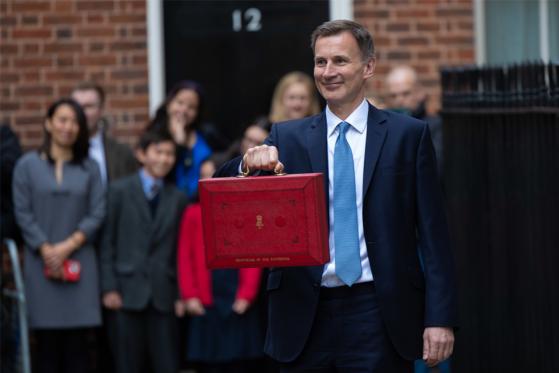Proactive Investors - Alcohol will now be taxed based on the strength of the drink; a controversial change described by the government as a tax cut but more like a hike by industry voices.
Proclaimed as cutting the tax paid on pints by 11p and helping pubs compete on a similar level to supermarkets, the government brought the change into effect on Tuesday after first announcing the plan at the Spring Budget earlier this year.
Under the new plans, drinks with alcohol by volume (ABV) under 3.5% will be taxed less, while beverages with over 8.5% ABV will stay the same.
Sparkling wine is expected to see a tax reduction of 19p, draught beer – the main benefiter of reforms - is not expected to change in pubs and spirits are predicted to increase by 76p per bottle.
Alcohol Duty Reforms were met by cheers at Hunt's Spring Budget Source: Gov.uk
“Not only will today’s changes mean that that the price of your pint in the pub is protected, but it will also benefit thousands of businesses across the country,” Rishi Sunak said in a statement.
Not so sure
Brewers, spirit manufacturers, and even figures in the pub industry aren’t convinced the changes are as good as the government is saying.
“I definitely would not celebrate it. The idea that it means beer being cheaper is not true. What we see is a rise in alcohol duty in a way that discriminates against spirits,” said Diageo (LON:DGE) UK’s managing director Nuno Telles.
Prices have steadily risen at the Captain Morgan and Smirnoff owner over the last year to offset falls in volumes and higher input prices.
Telles said these price hikes should slow, but the company would “monitor” the situation and up prices if required.
Diageo reported revenue growth of over 10% for the full financial year, driven by a strong performance in Guinness – which sales were up in by 16%.
More misery for brewers
Brewers will now pay 10.1% more on cans and bottles of beer, meaning 30% of the cost of a 500ml bottle will be made up by tax, the British Beer and Pub Association (BBPA) said.
Emma McClarkin, chief executive officer of the BBPA stated: “Brewers don't just supply draught products, they package beer in bottles and cans for enjoyment in pubs and at home as well, so the 10.1% duty increase will have a huge impact, and overall will likely lead to costs going up across the whole category.”
Worst hit categories
Fortified wines like vermouth and sherry are set to suffer the most because of the changes and a bottle of port with a 20% ABV could rise as much as 44% under the new rules, resulting in prices increasing by as much as £1.50 per bottle.
Wines have been given an 18-month breathing period before being taxed by strength, something the Wine and Spirit Trade Association (WSTA) believes should be in place for other drinks categories.
Miles Beale, chief executive officer of the WSTA said: “We keep hearing Government claim their priority is to tackle inflation, but alcohol tax rises will only further fuel inflation. It will heap more misery on consumers.
“It will damage British business, especially those in the hospitality supply chain, who are still trying to recover from the pandemic.”
Read more on Proactive Investors UK
